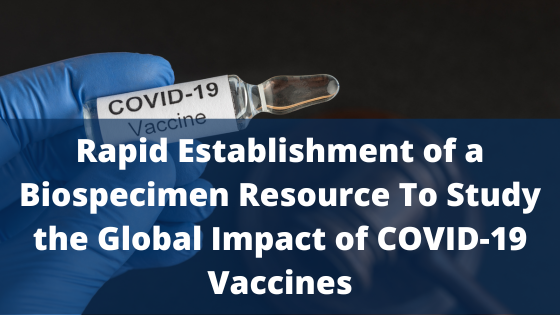The emergence and explosive spread of the severe acute respiratory syndrome coronavirus 2 (SARS-CoV-2) in 2019 highlighted the need to rapidly develop curated biobanks to inform the etiology, diagnosis, and treatment options for global outbreaks of communicable diseases.

Read this paper which discusses the efforts to develop a repository of biospecimens from individuals aged 12 and older who were to be vaccinated against coronavirus disease 19 (COVID-19) with vaccines developed with support from the United States Government.
The researchers planned to establish 40 or more clinical study sites in at least six countries to collect biospecimens from 1,000 individuals, 75% of whom were to be SARS-CoV-2 naive at the time of enrollment. Specimens would be used to (i) ensure quality control of future diagnostic tests, (ii) understand immune responses to multiple COVID-19 vaccines, and (iii) provide reference reagents for the development of new drugs, biologics, and vaccines. Biospecimens included serum, plasma, whole blood, and nasal secretions. Large-volume collections of peripheral blood mononuclear cells (PBMCs) and defibrinated plasma were also planned for a subset of subjects. Participant sampling was planned at intervals prior to and following vaccination over a 1-year period.
